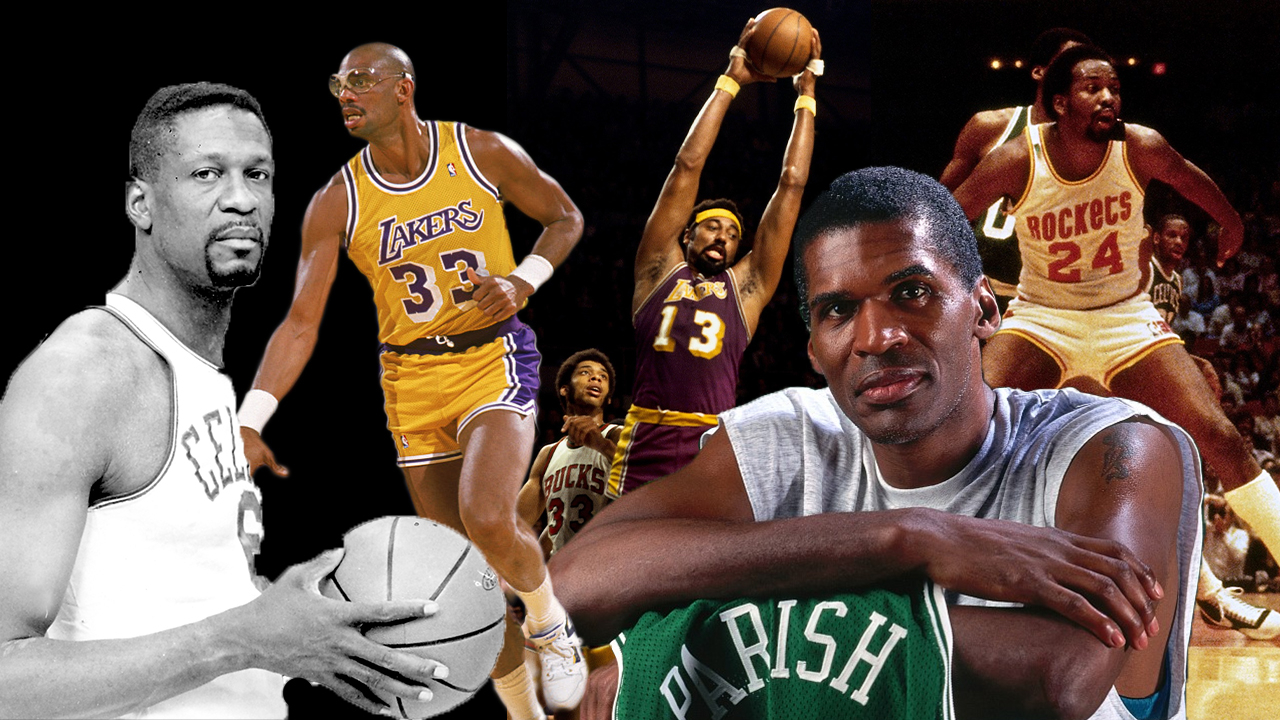
Moses Malone, #24 of the Houston Rockets, Wilt Chamberlain, #13, and Kareem Abdul-Jabbar, #33, of the Los Angeles Lakers, Bill Russell, #6, and Robert Parish of the Boaton Celtics. /CGTN's Feng Yuan
Moses Malone, #24 of the Houston Rockets, Wilt Chamberlain, #13, and Kareem Abdul-Jabbar, #33, of the Los Angeles Lakers, Bill Russell, #6, and Robert Parish of the Boaton Celtics. /CGTN's Feng Yuan
Even though it's off the court, trading has been a big part of the fun in the NBA. Sometimes a good deal changed who would win the championship, or, how many championships one could win.
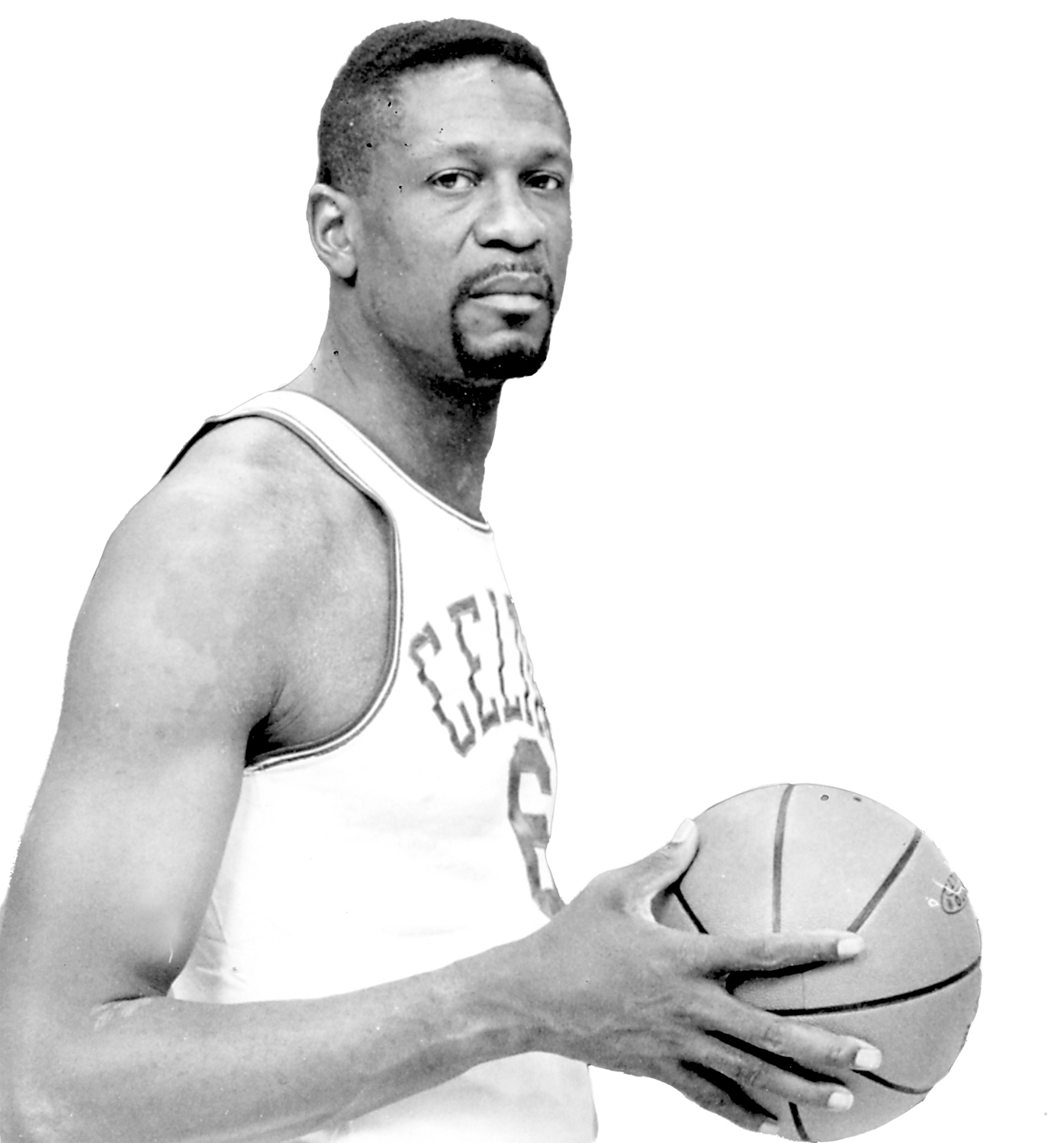
Bill Russell of the Boston Celtics poses for photo, September 13, 1965. /VCG
Bill Russell of the Boston Celtics poses for photo, September 13, 1965. /VCG
Draft pick exchange between the Boston Celtics and the St. Louis Hawks in 1956
Before the 1956 NBA Draft, the Hawks already had a historic power forward Bob Pettit so they understandably were not that invested in selecting another big man, despite that this was a 2.06-meter-tall (net) guy who could finish the 440-yard dash (about 402.3 meters) at 49.6 seconds.
That's why the Hawks accepted the offer of Red Auerbach to exchange their draft picks and selected Cliff Hagan. To be fair, this was not a bad choice. 1.93-meter-tall Hagan was a five-time All-Star and won the 1958 NBA Championship with Pettit.
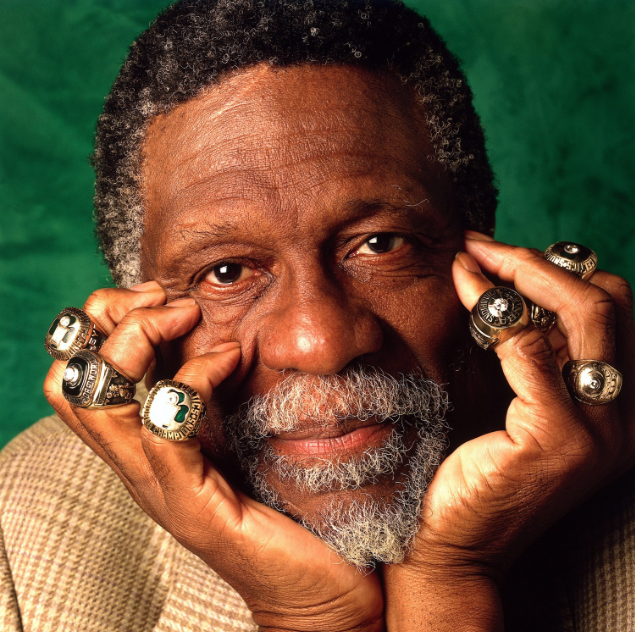
Bill Russell, former center of the Boston Celtics, wearing his NBA championship rings. /VCG
Bill Russell, former center of the Boston Celtics, wearing his NBA championship rings. /VCG
On Boston's side, Auerbach selected 22-year-old Bill Russell and introduced him to the team as a guy who could change everything. What happened next?
Hagan retired in 1970 with one ring. Russell retired one year earlier than him with 11 NBA titles under his name and the honor of having the NBA Finals MVP award named after him.
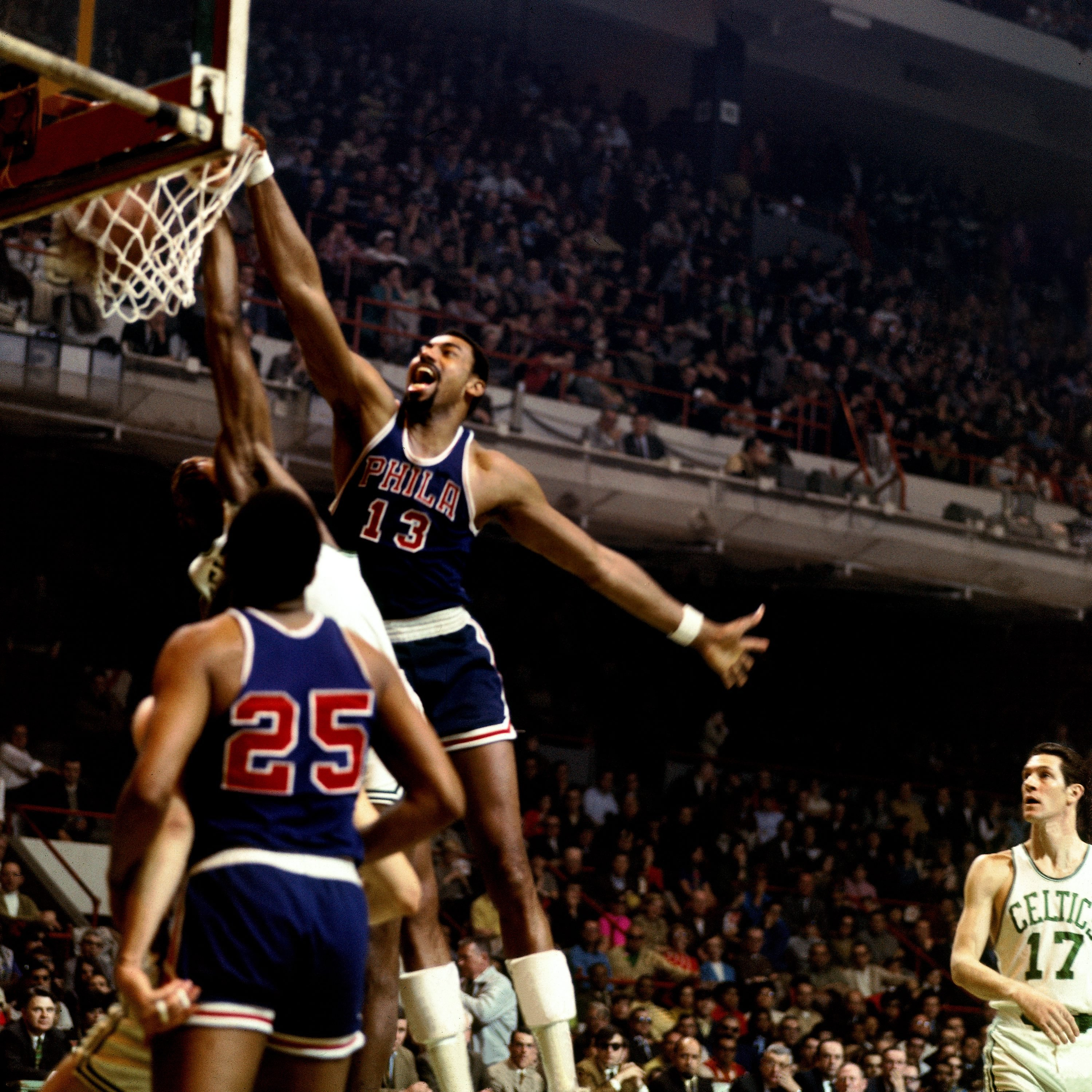
Wilt Chamberlain, #13 of the Philadelphia 76ers, tries to block a a shot in the game against the Boston Celtics at the Boston Garden in Boston, Massachusetts, 1967. /VCG
Wilt Chamberlain, #13 of the Philadelphia 76ers, tries to block a a shot in the game against the Boston Celtics at the Boston Garden in Boston, Massachusetts, 1967. /VCG
The San Francisco Warriors sent Wilt Chamberlain to Philadelphia 76ers in 1965
Warriors fans had more fun watching their teams play since Wilt Chamberlain entered the NBA in 1959. In the 1961-62 season, he averaged 50.4 points, 25.7 rebounds per game and scored 100 points in the game against the New York Knicks. Though he could not help the team a title in the five and a half seasons there, that did not justify the Warriors' decision of trading Chamberlain for Paul Neumann, Connie Dierking, Lee Shaffer and 150,000 U.S. dollars (about 1.22 million today).
Neumann got a total of 4,989 points in his six-year-long career – by contrast, Chamberlain had 4,029 points in the 1961-62 season alone. Dierking dropped 1,000+points in only three seasons. As for Shaffer, he did not even report to the Warriors but chose to retire. The only benefit the team achieved from this deal was their 17-63 record of that season which enabled them to select Rick Barry in the 1965 draft.
Barry led the Warriors to defeat both the Los Angeles Lakers and the Hawks in the 1967 playoffs, before they were defeated by the Philadelphia 76ers and Chamberlain in the Finals.
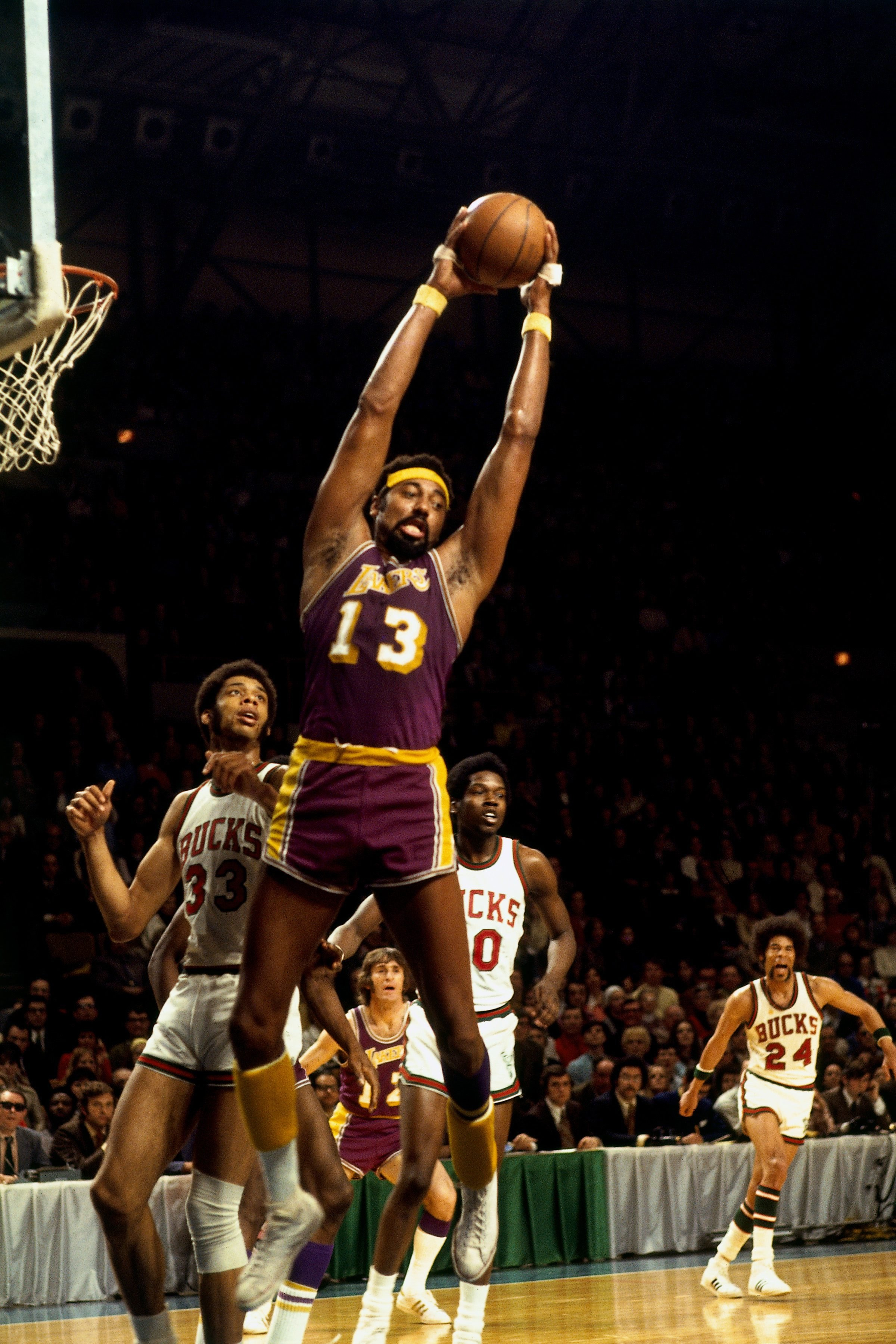
Wilt Chamberlain, #13 of the Los Angeles Lakers, grabs a rebound in the game against the Milwaukee Bucks at the Bradley Center in Milwaukee, Wisconsin, 1972. /VCG
Wilt Chamberlain, #13 of the Los Angeles Lakers, grabs a rebound in the game against the Milwaukee Bucks at the Bradley Center in Milwaukee, Wisconsin, 1972. /VCG
The Philadelphia 76ers sent Chamberlain to Los Angeles Lakers in 1968
Perhaps the 76ers were already satisfied with the 1967 NBA Championship they won with Chamberlain, perhaps they did not think Chamberlain was doing good enough by winning the 1968 NBA Most Valuable Player award, or perhaps they believed that the partners of Billy Cunningham and Hal Greer were good enough to replace 31-year-old Chamberlain – the 76ers decided to trade him to the Lakers for Darrall Imhoff, Jerry Chambers and Archie Clark in 1968 summer.
Then the Lakers made the NBA Finals three times in the following four years and pocketed the title in 1969 with team record 69 wins. Chamberlain was able to leave with at least one Finals MVP trophy.
By the way, the 76ers finished the 1972-73 season with a 9-73 record.
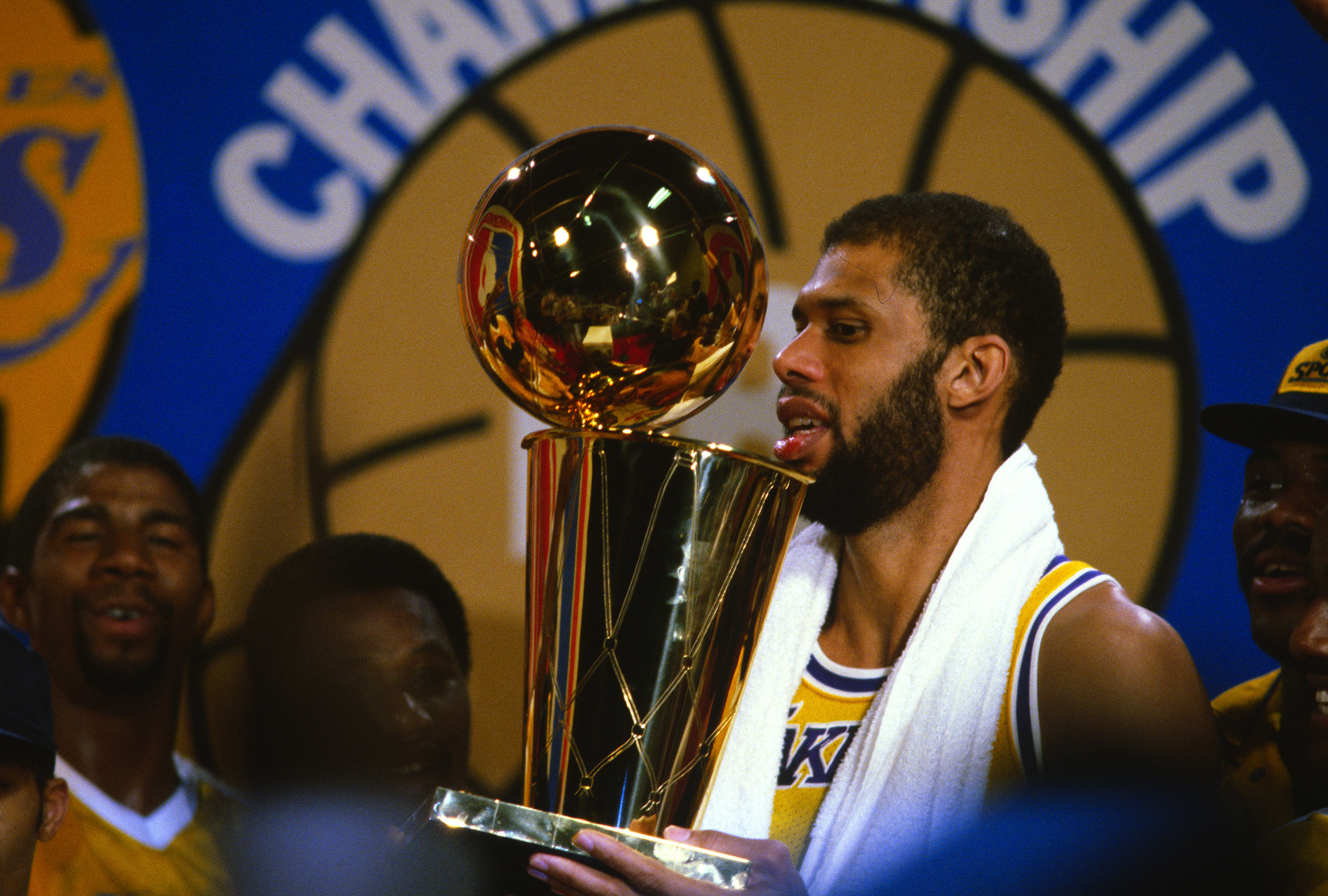
Kareem Abdul-Jabbar of the Los Angeles Lakers holds the NBA championship trophy after the Lakers beat the Philadelphia 76ers 4-2 in the Finals at The Forum in Inglewood, California, June 8, 1982. /VCG
Kareem Abdul-Jabbar of the Los Angeles Lakers holds the NBA championship trophy after the Lakers beat the Philadelphia 76ers 4-2 in the Finals at The Forum in Inglewood, California, June 8, 1982. /VCG
The Milwaukee Bucks sent Kareem Abdul-Jabbar to Los Angeles Lakers in 1975
Since Lew Alcindor / Kareem Abdul-Jabbar was selected by the Bucks in the 1969 NBA Draft, he was named six-time All-Star, five-time All-NBA Teams, four-time All-Defensive Teams, two-time scoring champion, three-time regular season Most Valuable Player and helped the team win the 1971 NBA Championship as the Finals MVP.
Then the Bucks decided to trade the 28-year-old Jabbar to the Lakers for Elmore Smith, Brian Winters, Dave Meyers and Junior Bridgeman in 1975 summer. After that the Bucks have never made the Finals anymore.
By contrast, Abdul-Jabbar got another three MVP trophies in the Lakers, paired with Magic Johnson and James Worthy to win five more titles in seven Finals.
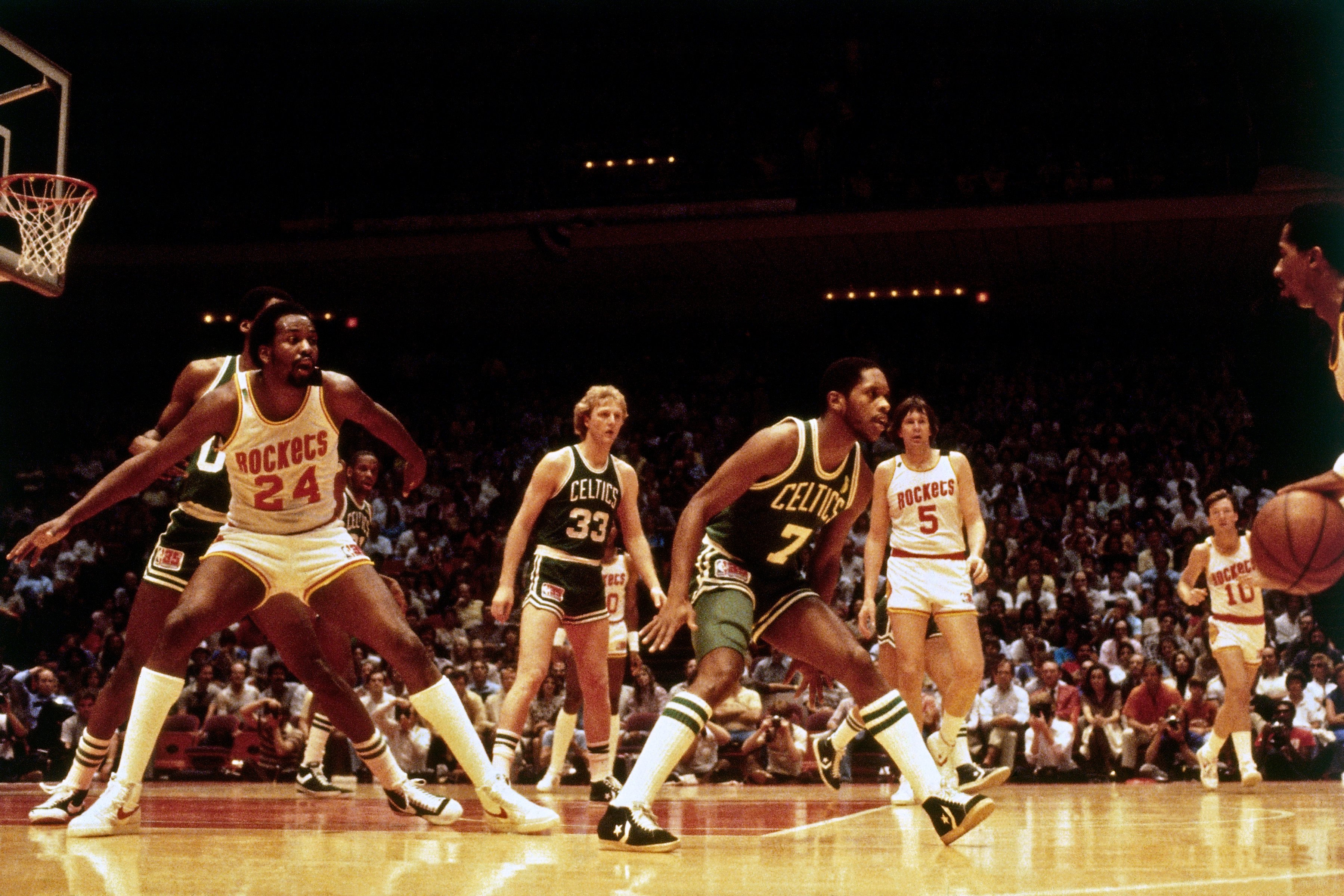
Moses Malone, #24 of the Houston Rockets, in the game against the Boston Celtics at the Houston Summit in Houston, Texas, 1981. /VCG
Moses Malone, #24 of the Houston Rockets, in the game against the Boston Celtics at the Houston Summit in Houston, Texas, 1981. /VCG
Moses Malone traded by the Portland Trail Blazers and the Buffalo Braves in 1976
When the American Basketball Association (ABA) merged with the NBA in 1976, Moses Malone needed a new job. Unlike "Dr. J" Julius Erving, "Skywalker" David Thompson or "The Iceman" George Gervin, Malone's game was not much exciting, not to mention that he was a high-school professional player. Not many teams wanted to bet on him.
The Trail Blazers already had Bill Walton, who would become one of the 50 Greatest Players in NBA History as their center in the future. So they passed on Malone – although the team did not know that Walton only played 40 percent of the games in his 14-season-career. The Braves also sent Malone away at the price of two first-rounders. It does matter why they did so and this was simply one of the terrible decisions made by the team's front office.
Then Malone went to Houston where he became five-time All-Star, three-time rebounding champion and two-time regular season MVP. In 1981, he led the Rockets to knock out the Lakers, the San Antonio Spurs and the Kansas City Kings to reach the Finals before losing to the Celtics in six games.
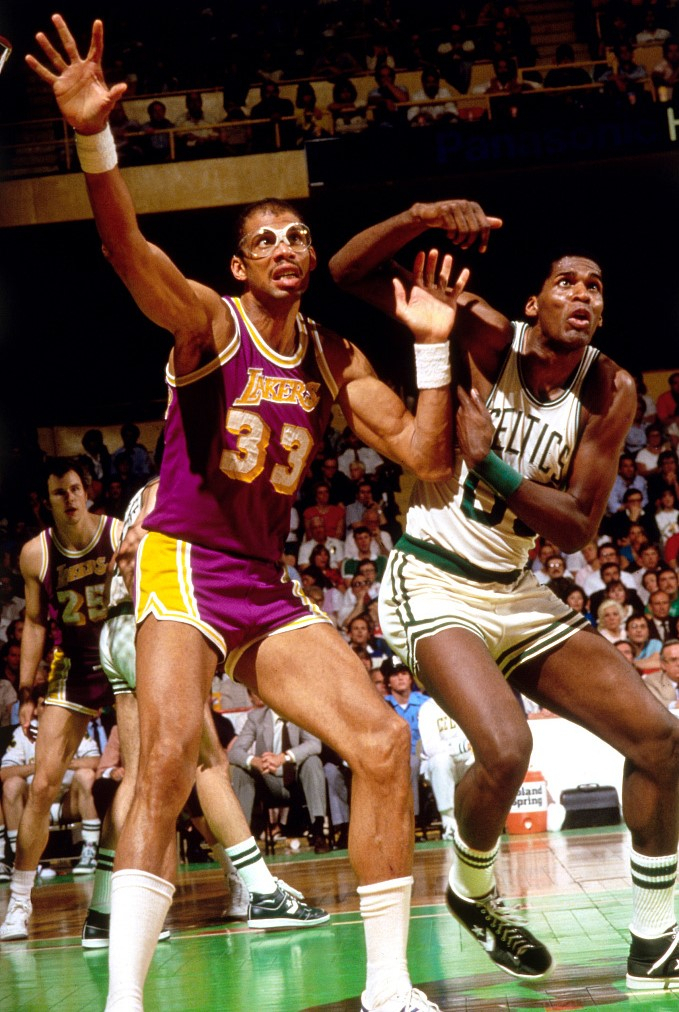
Kareem Abdul-Jabbar, #33 of the Los Angeles Lakers, tussles with Robert Parish of the Boston Celtics in the game at the Boston Garden, 1984. /VCG
Kareem Abdul-Jabbar, #33 of the Los Angeles Lakers, tussles with Robert Parish of the Boston Celtics in the game at the Boston Garden, 1984. /VCG
The Golden State Warriors sent the third draft pick and Robert Parish to the Boston Celtics for the first and the 13th picks in 1980
Neither the Warriors team nor their fans liked Parish and would be happy to send him away. Before the 1980 draft, the team already nosed up at Joe Barry Carroll from Purdue. That's why they did not even hesitate to say "Yes" to an offer of the first and the 13th picks for Parish and the third pick, even if it was proposed by Auerbach.
11 years later, Carrol retired as one-time All-Star and one Italian basketball league title. As for Rickey Brown who was selected by the Warriors with the 13th pick, he only played five years in the NBA – two of which did not even happen in the Warriors – before traveling around Europe.
Auerbach again gave the Celtics what they needed for glories. Both Parish and Kevin McHale, who was selected by the team with the third pick, were named the 50 Greatest Players in NBA History. They helped Larry Bird win all his three NBA Championships in five Finals.